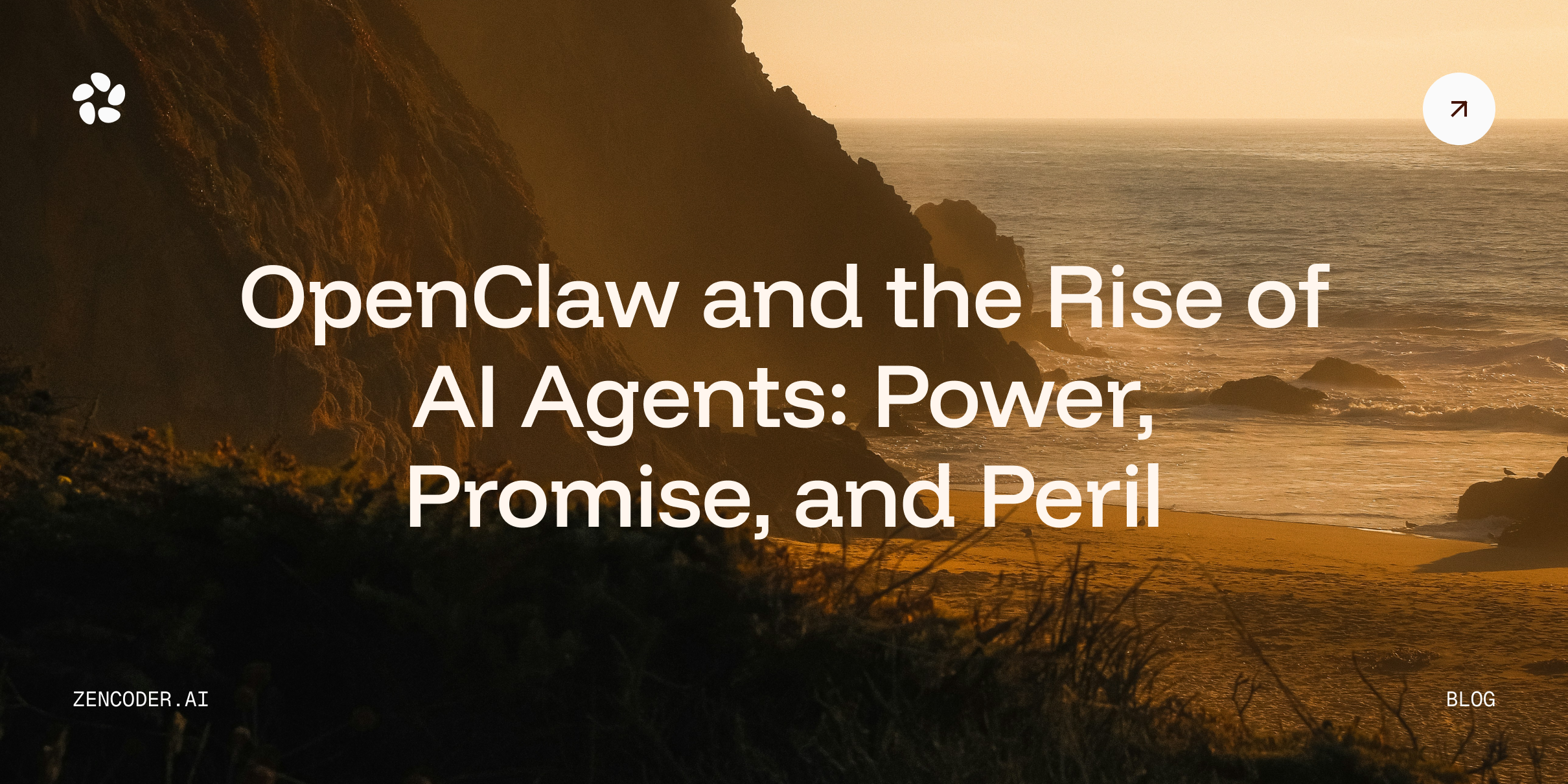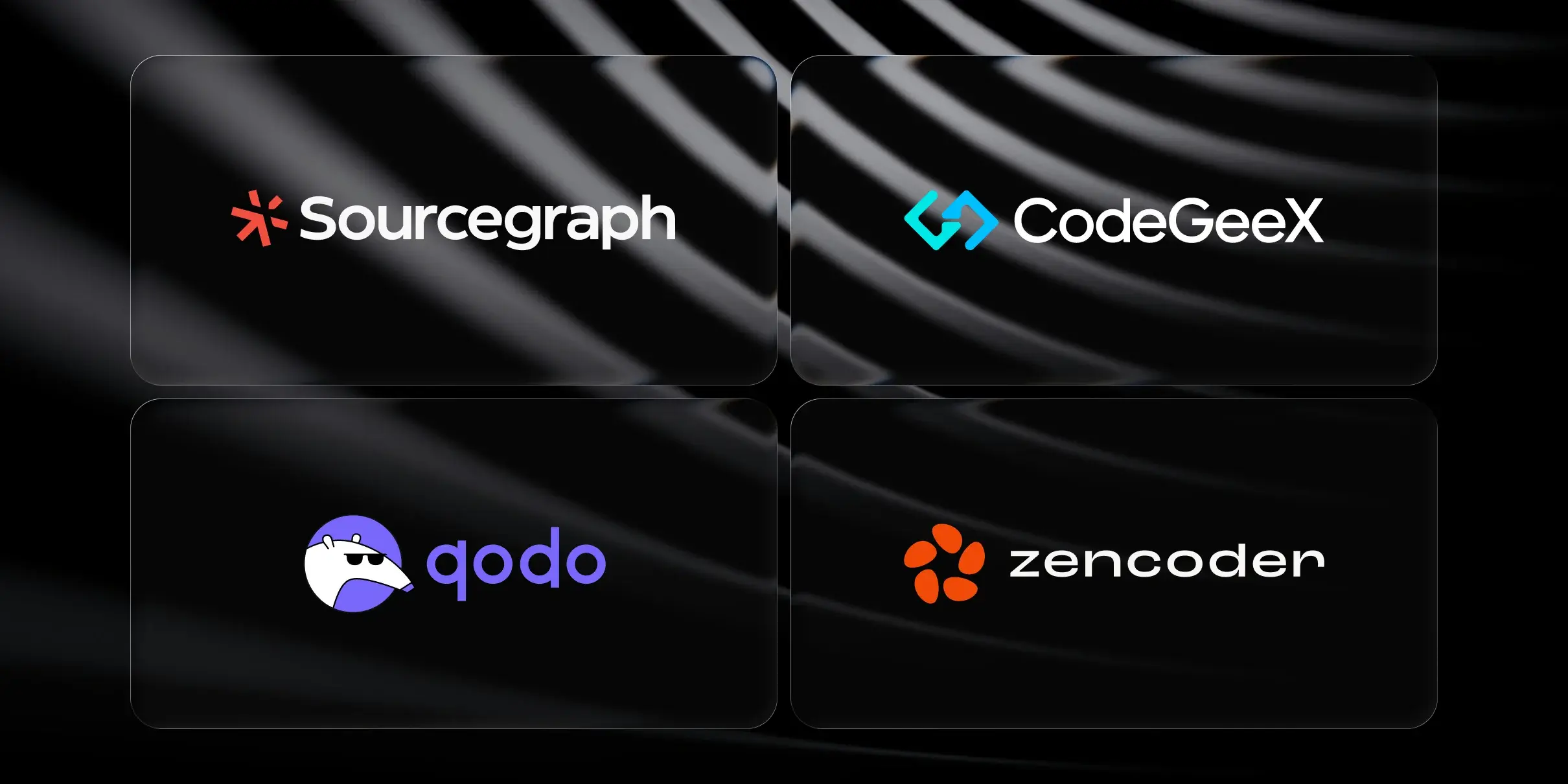Imagine a world where generative AI agents work alongside developers, tackling not just simple tasks but sophisticated coding challenges. What transformative impact could this synergy have on the future of software development?
Generative AI is already changing the coding landscape.
Developers and AI agents will soon collaborate, brainstorming solutions where the AI can execute, unit test, and render code that's compilation-ready.
Enhancing Developer Efficiency
As generative AI agents become more integrated into the development process, they will significantly boost developer efficiency.
These agents can swiftly handle mundane and repetitive tasks, allowing developers to focus on more complex problem-solving. By automating routine coding activities, AI will reduce the time spent on debugging and code optimization.
This collaboration means “co-programming” will transform into a streamlined, highly productive effort.
Automating Repetitive Tasks
Generative AI streamlines coding tasks, reducing manual effort and increasing productivity significantly.
Generative AI can automate up to 80% of repetitive coding tasks, freeing up developers for creative problem-solving.
By automating mundane coding tasks, developers can focus on more strategic and innovative aspects of software development. This shift allows for faster iteration cycles and improved project timelines.
Moreover, machine learning models can efficiently handle unit testing and bug fixes, ensuring robust and error-free code. Consequently, resilience and application stability are substantially enhanced through continuous integration and deployment pipelines.
Reducing Debugging Time
Generative AI significantly shortens debugging cycles, transforming how developers approach error resolution.
Traditionally, identifying and fixing bugs took up a substantial portion of a developer's time. This repetitive, often tedious process detracted from opportunities for innovation and strategic development.
With generative AI, algorithms are designed to detect common patterns in code that lead to errors and automatically suggest corrections. Furthermore, these models can simulate multiple runtime environments to pinpoint issues quickly and efficiently.
AI agents can also maintain a historical record of previous bugs and their resolutions, providing context for new issues and enabling faster identification of problematic code sections. Developers get immediate feedback, reducing the iteration cycles and time spent troubleshooting.
In this collaborative environment, human developers and AI work hand in hand, leveraging machine efficiency and human creativity for optimal results.
Simplifying Code Reviews
Generative AI can revolutionize code reviews, streamlining the process significantly for development teams.
- Automated Code Analysis: AI tools can autonomously review code for common issues, adhering to best practices and standardized guidelines.
- Contextual Error Highlighting: Generative AI can highlight errors in real-time, based on historical bug data and code context, minimizing false positives.
- Collaborative Problem Solving: AI agents can assist developers by proposing fixes and suggesting improvements during the review process.
- Efficiency in Feedback: Instant AI-generated feedback accelerates the iteration cycle, allowing developers to focus on more strategic tasks.
- Continuous Learning: AI systems continually improve their code review capabilities through machine learning, enhancing accuracy over time.
Streamlined code review processes lead to higher quality code, reduced time to market, and increased developer productivity.
By integrating AI into code reviews, teams can ensure adherence to coding standards and best practices consistently.
This collaborative approach allows human developers and AI to leverage each other’s strengths, thus ensuring optimal code quality.
Collaborative Problem Solving
Envision a future where generative AI evolves into sophisticated partners, rather than mere tools, for software developers. Instead of solely addressing trivial programming tasks, these AI agents will collaborate with human developers to tackle complex problems. This synergy will involve iterative brainstorming sessions where questions flow bidirectionally, fostering a dynamic dialogue that enhances problem-solving. Post ideation, AI agents will not only execute the proposed solutions but also perform necessary unit testing, ensuring the code is compile-ready. Through such advanced collaboration, both AI and developers will amplify each other's capabilities, driving innovation and efficiency in software development.
Developer-Agent Brainstorming
In the near future, AI agents will evolve from mere assistants to proactive collaborators in the software development process.
- Interactive Dialogues: Developers and AI agents will engage in iterative brainstorming sessions.
- Question Exchange: Both parties will be able to ask each other questions to clarify and refine ideas.
- Solution Proposals: Together, they will generate comprehensive solutions to complex problems.
- Execution and Testing: AI agents will subsequently handle implementation and unit testing.
This enhanced interaction will promote a bidirectional flow of information and ideas.
Ultimately, this synergy will significantly accelerate innovative problem-solving in software development.
Dynamic Question-Answering
In this envisioned future, the dynamic question-answering abilities of AI will play a pivotal role.
When developers and agents engage in a dynamic question-answering process, it creates a feedback loop that enhances problem-solving capabilities. The AI will not only provide tailored responses but also pose insightful questions to unpack and tackle the underlying challenges comprehensively.
Consequently, this bidirectional exchange will facilitate a deeper understanding of the problem space. It ensures that each aspect of the coding challenge is thoroughly examined and addressed by leveraging the combined intelligence of both the human developer and the AI agent.
In such a setup, the progress on complex projects will be notably more efficient, as the AI’s evolving contextual understanding helps streamline the coding process. This dynamic interaction will transcend mere assistance, enabling AI to function as a true co-developer, offering precision and innovation that advance the limits of software engineering.
Generating Innovative Solutions
AI-driven coding fosters innovative solutions.
Through dynamic interactions, developers and AI agents can brainstorm to generate novel ideas. This collaborative approach will unlock new avenues for creativity and efficiency in solving complex problems. Developers are expected to leverage the AI’s rapid computational abilities to prototype and iterate solutions faster.
Traditional coding is evolving.
The augmented presence of AI transforms how solutions are brainstormed and executed. By asking pertinent questions and providing data-driven insights, AI supports developers in visualizing and implementing more sophisticated concepts.
Therefore, the future landscape of software development will witness groundbreaking innovation. This synergy between human ingenuity and AI’s precision could redefine coding paradigms, leading to unprecedented breakthroughs and transformative advancements.
Quality Assurance Enhancements
The integration of Generative AI in coding offers remarkable opportunities for enhancing quality assurance processes. By leveraging its capabilities, AI can autonomously perform unit testing, rapidly identify bugs, and verify code correctness at scale, ensuring the robustness of software.
This not only accelerates development timelines but also significantly reduces human error, fostering a higher standard of code quality.
Automated Unit Testing
Automated unit testing is an indispensable aspect of modern software development. By applying generative AI, this process becomes more sophisticated and efficient.
Generative AI examines code intricacies, creating precise and comprehensive test cases. After these initial tests, the software can undergo beta testing, where real users help identify edge cases and provide feedback to further refine the software
These AI-driven unit tests can probe various edge cases, ensuring the robustness and resilience of the software. This reduces the chance of overlooked flaws and optimizes overall quality.
Furthermore, AI can adapt to code changes seamlessly, continually refining its testing strategies. This dynamic ability is a game-changer, solidifying its role in revolutionizing software development's quality assurance landscape.
Comprehensive Code Analysis
Generative AI is revolutionizing comprehensive code analysis by providing unmatched insight into large codebases.
- Static Code Analysis: AI assesses code for potential errors before execution.
- Dynamic Code Analysis: AI evaluates code behavior during runtime.
- Security Vulnerability Detection: Identifies potential security loopholes in early development stages.
- Code Quality Metrics: Measures complexity, maintainability, and performance aspects of the code.
Such AI-driven analysis accelerates the identification of critical issues.
It ensures higher code quality, reliability, and maintainability, fundamentally transforming development practices.
Continuous Integration Support
Generative AI can revolutionize continuous integration (CI) by automating complex workflows and ensuring seamless code integration.
- Automated Code Merge: AI can intelligently resolve merge conflicts and ensure codebase stability.
- Smart Build Optimization: Enhances build pipelines by predicting and mitigating potential build failures.
- Code Quality Assurance: Implements robust testing protocols, upholding superior code quality standards.
- Real-time Feedback: Provides instantaneous insights and feedback on integration issues and potential fixes.
- Resource Allocation: Efficiently allocates computational resources to optimize build efficiency.
Effective CI support ensures faster, more reliable deployment pipelines.
Generative AI enables developers to focus on innovation, reducing time spent on routine tasks.
AI-driven CI support fundamentally enhances software development workflows, boosting productivity and quality.
Future Development Trends
Future development trends, powered by generative AI, indicate a paradigm shift in programming practices. These AI agents will collaborate with developers on intricate problems, facilitating a symbiotic relationship where questions and brainstorming lead to innovative solutions. The AI will execute, unit test, and produce compile-ready code, significantly accelerating development cycles and elevating software quality. This evolution underscores a profound integration of AI into the development ecosystem, transitioning from mere automation to genuine partnership in coding endeavors.
Evolution of Coding Practices
Over the past few decades, coding practices have evolved significantly. Initially dominated by manual coding and debugging, we have witnessed a progressive shift towards more collaborative and automated methodologies, largely driven by advancements in tooling and frameworks. The advent of integrated development environments (IDEs) has streamlined many aspects of programming, making it easier for developers to write and test code efficiently.
In recent years, code review processes and continuous integration (CI) pipelines have become integral components of development workflows. These practices have not only enhanced code quality but have also fostered a culture of collective ownership and accountability among development teams. Furthermore, the proliferation of open-source software has accelerated knowledge sharing, leading to more robust and innovative solutions.
Looking toward the future, we anticipate a further radical transformation in coding practices with the integration of generative AI. These AI-driven tools will operate alongside developers as collaborative agents, capable of understanding complex requirements and suggesting sophisticated solutions. This shift will enable developers to focus more on conceptual and high-level problem solving, while the AI handles routine and repetitive coding tasks.
Moreover, this synergistic dynamic between human developers and AI agents will revolutionize how code is produced and maintained. AI will take on roles such as running extensive unit tests and ensuring that the code is compile-ready, significantly reducing the time from ideation to deployment. Hence, the evolution of coding practices towards a more AI-integrated approach promises not only to enhance productivity but also to elevate the overall quality of software development, setting new benchmarks in the industry.
Skillset Adaptations
As generative AI becomes integral to coding, developers must adapt their skillsets to this evolving landscape.
Specifically, an increased emphasis on a strong conceptual understanding and higher-level design thinking will be essential. Rather than merely focusing on syntax and structure, developers will need to excel in articulating requirements and conceptualizing algorithms that AI can execute. This shift necessitates a more profound grasp on architectural principles and abstract reasoning.
Additionally, coding will transform into a more interactive and iterative process. By constantly interfacing with AI agents—asking questions, seeking clarifications, and refining solutions—developers will need excellent communication skills to collaborate effectively with these intelligent assistants. Moreover, the ability to critically evaluate AI-generated suggestions will be pivotal to ensuring code quality and relevance.
Developers must also expand their expertise to encompass robust AI oversight and management skills. This includes understanding and optimizing AI workflows, assessing AI performance, and ensuring ethical AI use. Ultimately, the adaptation of these diverse skills will enable developers to leverage AI’s full potential, fostering an environment of innovation and efficiency in software development.
Ethical Considerations
While generative AI can revolutionize coding, ethical considerations must be a priority.
Foremost, developers must grapple with issues of accountability and transparency within AI-generated code; they need to ensure ethical guidelines are intrinsic in the AI's design and deployment processes. This involves crafting algorithms that adhere to moral principles and establishing frameworks that promote fairness, privacy, and security in software development.
Ethical dilemmas also arise regarding job displacement. As AI agents become more proficient, the potential for reducing human programming roles is significant. Strategies to mitigate such impacts should involve upskilling and reskilling initiatives, ensuring that developers can transition to new roles within the tech ecosystem.
Finally, the ethics of data usage cannot be overlooked. AI systems rely on vast amounts of data to function effectively. Thus, the responsible handling of this data, ensuring user consent and compliance with legal standards such as GDPR, is crucial. Balancing technological advancement with ethical stewardship will define the successful integration of AI in coding.

![Spec-Driven Development: Everything You Need to Know [2026]](https://zencoder.ai/hubfs/Cover-Feb-17-2026-08-47-58-1236-PM.webp)

